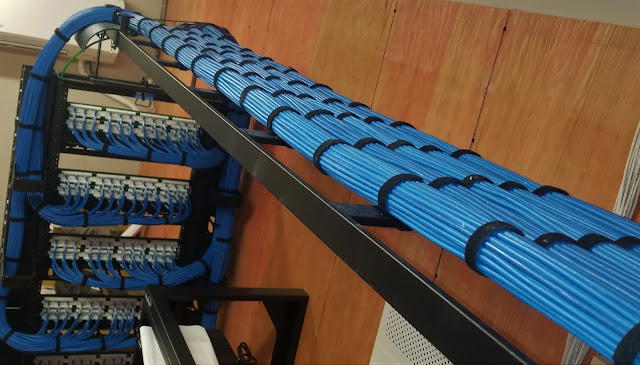The Essential Role of Audio Video Integrators in Crafting Modern Home Entertainment Experiences
Introduction
In the evolving landscape of home entertainment, the integration of
audio and video technology plays a pivotal role. It's not just about having the
latest gadgets; it's about creating a seamless, immersive experience that
transcends the traditional boundaries of media consumption. This is where audio video integrators come into play,
serving as the architects of modern home entertainment systems. They are the
unsung heroes who blend technology with lifestyle, ensuring that every
component of a home entertainment system not only functions flawlessly but also
enhances the overall living experience.
The Evolution of Home Entertainment Systems
To appreciate the role of audio video integrators, one must understand
how home entertainment systems have evolved. Gone are the days when a simple
television and DVD player sufficed. Today, home entertainment systems have
become sophisticated ecosystems, comprising high-definition screens, surround
sound speakers, streaming devices, and often, smart home technology. These
components need to work in harmony, which is a complex task requiring
specialized skills and knowledge.
Understanding Audio Video Integration
Audio video integration involves the seamless combination of various
audio and visual technologies into a cohesive system. An integrator's job is to
understand the nuances of different technologies and how they can be best
utilized in a given space. This includes knowing the acoustics of a room, the
lighting conditions, the types of devices being used, and how they all connect
to create an optimal viewing and listening experience.
Designing Tailored Home Entertainment Solutions
Every home is unique, and so are the entertainment needs of its
inhabitants. Audio video integrators excel in creating customized solutions.
They assess the physical layout of a space, consider the user's preferences,
and design systems that are not only technologically advanced but also
aesthetically pleasing. This might involve integrating hidden speakers,
recessed screens, or using smart lighting to enhance the viewing experience.
Smart Home Integration
The rise of smart home technology has added another layer of
complexity to home entertainment systems. Audio video integrators now also need
to ensure that entertainment systems can seamlessly interact with other smart
home devices, such as thermostats, blinds, and security systems. This
integration can lead to scenarios where a single voice command adjusts the
lighting, lowers the blinds, and starts your favorite movie, all in perfect
synchronization.
The Challenge of Ever-Evolving Technology
The field of audio video integration is constantly evolving.
Integrators must stay abreast of the latest developments in technology to
provide the best solutions. This includes understanding emerging trends like 4K
and 8K video, Dolby Atmos sound, and the latest in streaming technology.
Keeping pace with these advancements is crucial to design systems that are not
only cutting-edge today but also future-proof.
Overcoming Acoustic and Aesthetic Challenges
One of the biggest challenges in audio video integration is managing
the acoustics of a room while maintaining its aesthetic appeal. Integrators
work closely with interior designers and architects to ensure that speakers,
screens, and other equipment complement the room's design. This might involve
custom-built units, in-wall or in-ceiling speakers, and screens that disappear
when not in use.
Customization and Personalization
A significant aspect of an integrator's job is to personalize the home
entertainment experience. This involves programming and setting up
user-friendly interfaces that allow homeowners to control their entertainment
systems easily. Customization can range from simple remote controls to
sophisticated apps that control every aspect of the home entertainment system.
The Future of Home Entertainment Systems
Looking ahead, the role of audio video integrators is set to become
even more significant. With advancements in virtual reality, augmented reality,
and more immersive audio-visual technologies, the home entertainment experience
is poised for radical transformations. Integrators will be at the forefront,
integrating these new technologies into home entertainment systems.
In conclusion, audio video integrators are the key to unlocking the
full potential of modern home entertainment systems. Their expertise in
blending technology seamlessly into our living spaces has transformed the way
we experience media at home. As technology continues to advance, their role
will only grow, ensuring that our home entertainment experiences are not just
up-to-date, but truly extraordinary.




Comments
Post a Comment